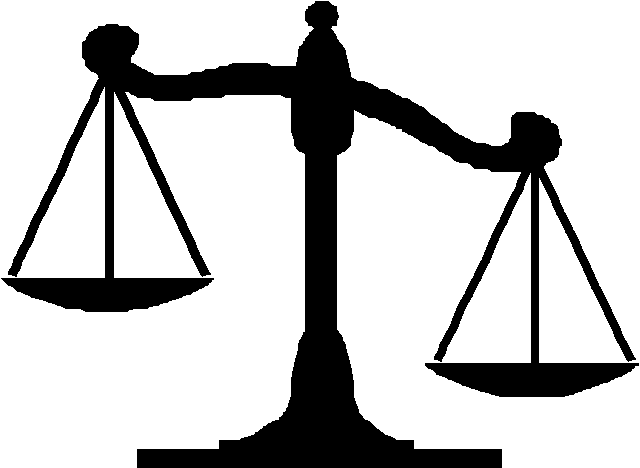The following Letter to the Editor was submitted to Gambit Weekly (New Orleans) but not published. April 10, 1999
Professor Leslie W. Abramson, in the introduction to his book(1) on judicial disqualification, states: "A fundamental goal of the American legal system is equal justice under the law. One means of achieving that goal is to insure that court proceedings are presided over by a neutral and detached judge. A judge who is free of bias or interest in the parties, attorneys, or the subject matter of the litigation is also a necessary prerequisite to maintaining public confidence in the legal system." Abramson then goes on to describe various circumstances in which a judge's impartiality might reasonably be questioned, thus prompting his recusal.
Those who instruct young law students generally assume this moral high ground when it comes to teaching ethical values. Nevertheless, it is possible for university law schools to abuse the very principles they purport to teach, creating a two-track system of ethical standards. The potential for this abuse arises when a university engages judges to serve as faculty members in its law school, and these same judges are then called upon to sit in cases in which the university is a defendant.
The appointment of judges as adjunct professors in law schools is a common practice that gives law students the valuable opportunity to view legal issues from the experience and perspective of a judge. In exchange, the appointed judge enjoys the prestige of a university professorship, fulfills a service obligation to the profession, interacts with administrators and other law professors in a university setting, and has other privileges. The dedication of a faculty judge to the university may be measured, in part, by his willingness to teach without financial compensation, although judges are already well-compensated by the public, whom they have sworn to serve.
A reasonable person would understand how a judge who is devoted to a university might feel obliged to protect it from a potentially costly judgment. This creates an ethical dilemma in which justice itself may become a casualty. To avoid this dilemma, a judge should not allow himself to be placed in a position that would cause him to be torn between loyalty to a university and his civil duty to provide justice for what may be a plaintiff's meritorious claim. However, in cases where a judge's vision is so blurred by partisanship that his judgment over this issue is impaired, the Appellate Court should have the good sense to recognize and correct the problem. To do otherwise would only damage public confidence in the judiciary.
The issue of faculty judges who sit in cases brought by faculty plaintiffs against the same defendant university is no mere academic question. There are a number of reported instances(2) where plaintiffs, associated with a university, failed in their attempt to recuse a judge associated with the same defendant university, and others are still pending. It is a troubling and growing concern among those who feel that the breach of ethics inherent in this scenario works to erode public trust in the judicial process.
That judges associated with a university may feel obliged to defend it is not lost on administrators who have aggressively sought to add judges to their law school faculties. To understand how an educational institution can benefit from this situation, one need look no further than to Tulane University, with which the author is familiar. Tulane's Law School has at least four judges(3) who are adjunct professors and who have been repeatedly called upon to preside in lawsuits brought against Tulane by its former employees. In these cases, the advantage gained by Tulane is evident from the degree of success it has enjoyed in meeting the legal challenges of the aggrieved plaintiffs.
One can only speculate on how many other university law schools with judges on their faculty are responsible for a state of affairs similar to Tulane's. It is a subject that merits nationwide examination. However, one thing is clear: as long as judges are allowed to disregard the code of judicial conduct for political considerations, the principle of equal justice under the law will remain an elusive goal.
Carl Bernofsky
Footnotes 1. Judicial Disqualification under Canon 3 of the Code of Judicial Conduct, 2 ed., Abramson, L.W., American Judicature Society, Chicago, IL (1992).
2. For examples where plaintiffs connected with a university failed in their attempt to recuse a judge associated with the defendant university, see: Tonkovich v. Kansas Bd. of Regents [924 F.Supp. 1084 (D.Kan. 1996)], Wu v. Thomas [996 F.2d 271 (11th Cir. 1993)], and Lunde v. Helms [29 F.3d 367 (8th Cir. 1994)].
3. The four known judges are: Hon. Max N. Tobias, Jr., Hon. Patricia R. Murray, Hon. Ginger Berrigan, and Hon. Joseph C. Wilkinson, Jr.
 Help Balance the Scales of Justice!
Help Balance the Scales of Justice!Censure Judge
Berrigan?
Web site created November, 1998 This section last modified July, 2007
| Home Page | Site Map | About Bernofsky | Curriculum Vitae | Lawsuits | Case Calendar |
| Judicial Misconduct | Judicial Reform | Contact | Interviews | Disclaimer |
This Web site is not associated with Tulane University or its affiliates
© 1998-2014 Carl Bernofsky - All rights reserved